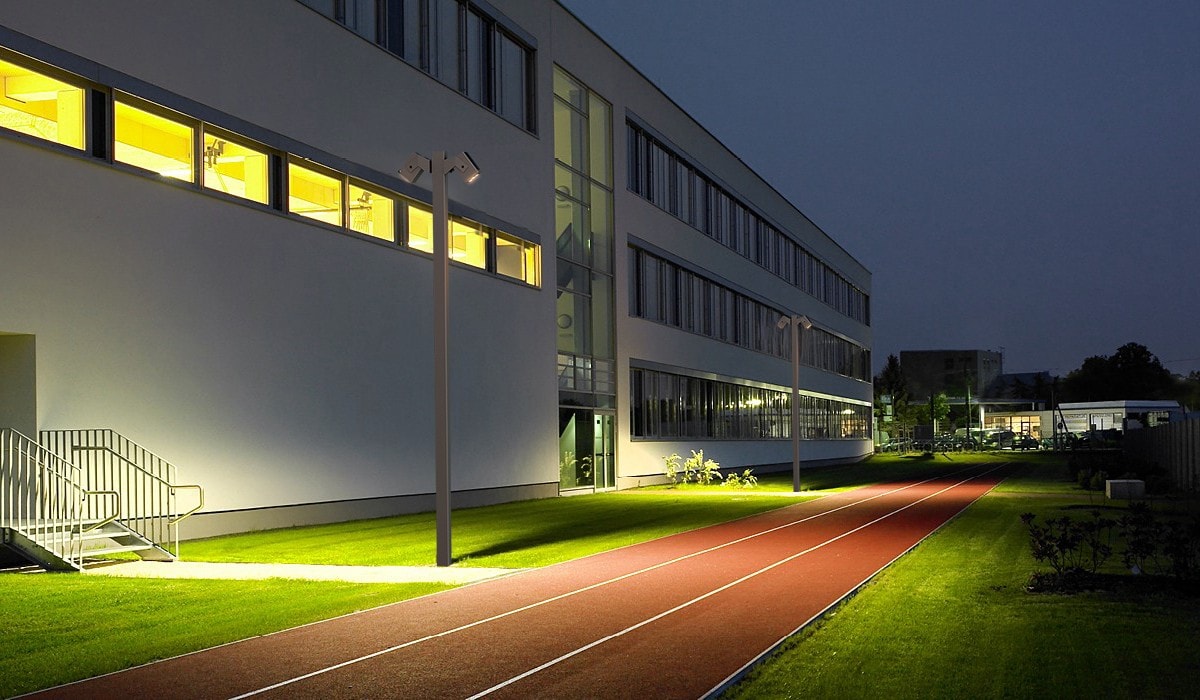There is a strong business case for companies across South Africa to consider renewable energy sources such as solar lighting, running their organisations efficiently and cost-effectively while hitting sustainability targets.
One of the primary advances of solar lighting is that once installed, solar lights run with zero cost, without any exposure to downtime during national grid power outages or when the local power supply becomes unstable.
Here we share some advice and information about optimising your business energy costs and accessing some of the financial incentives to replace wired legacy systems with advanced solar technology.
Tax Allowances for Green Energy and Lighting
An increasing proportion of companies are looking for alternatives due to the disruption in trade, production, and sales during periodic power outages and the incredible 400% increase in Eskom prices in the last decade.
Although some of the tax allowances available apply to solar panels fitted onto rooftops, they pave the way for further incentives to ease pressure on the national grid and help the government move towards carbon neutrality targets.
Some of the changes to tax allowances that may be relevant include the following:
-
- Income Tax Act 12B: capital allowances over three years on small solar energy projects producing under one MW a year.
- Income Tax Act 12U: costs of investing in fencing or roads as part of solar energy generation also attract separate capital allowances.
- Income Tax Act 12L: investments in local energy-efficiency initiatives receive a tax deduction against savings achieved in direct energy usage from the mains power supply.
That first capital expenditure deduction (Section 12B) allows businesses to reduce their tax obligation by 50%, 30% and 20% in years one to three, applied to spending on solar power generation and equipment improvements.
Fitting outdoor solar lights may not qualify in the same way as a set of solar panels – but a lot depends on whether you are reducing reliance on mains power while delivering a trade. For example, businesses that provide entertainment and typically use high-voltage outdoor lights may be able to claim a tax allowance through their accountant by switching to solar lights.
Green Fund Grants South Africa
Another interesting option could be to apply for a Green Fund Grant or to participate in a broader business network to ensure eligibility for financial support.
VentureBurn reports that start-ups and early-stage businesses can apply for investment, funding, and grant programmes such as:
-
- GreenTec seed funding, prioritising new business models that address environmental impacts, with the aim of financing 400 companies by 2023.
- GEF Small Grants, supporting projects that achieve local environmental sustainability with grants of up to $50,000 (R.893,278) per applicant.
The Green Fund is an R800 million programme managed by the Development Bank of Southern Africa, which invites applicants that help to meet climate objectives and increase employment.
If you are interested in making changes to your operating procedures to embrace solar power and renewable energy or address local environmental issues, one of these options may be suitable for your business.
Reasons for South African Businesses to Switch to Solar Lighting
There are several excellent schemes available to help businesses in South Africa become more eco-friendly. Still, solar outdoor lighting can be a smart commercial move even without grant funding or tax allowances.
Accountants manage expenses such as outdoor lighting or solar energy improvements in two ways:
- Writing off the expense as tax-deductible – this means your tax bill reduces by the same amount you have spent on your lighting.
- Adding the lighting to your assets and writing down the value as it depreciates over time.
You can review a full list of tax-deductible expenses through QuickBooks South Africa, but any outdoor solar lighting used in a business context is an eligible outgoing.
For example, outdoor Security Lights are a valid capital expenditure for businesses that need security lighting around storefronts, loading bays and car parks and Landscape Lights are a qualifying expense to improve the frontage of your business premise.
Business owners may also invest in Roadway Lights for business parks and industrial zones as an accident prevention measure and a safeguarding requirement for pedestrians and nearby residents.
Benefits of Solar Lighting for South African Business
As we have seen, solar lights may qualify for funding initiatives and reduce your tax bill while being considerably more cost-effective.
Solar lights can support businesses in multiple ways:
-
- Showcasing a commitment to the environment and protecting local ecosystems.
- Meeting sustainability targets and upholding your Corporate Social Reasonability aims.
- Improving your reputation with customers who care about business ethics and environmental impacts.
- Supporting improvements in eco-friendly business practises within your local commercial sector.
Any changes to business infrastructure that demonstrate environmental responsibility are a good PR exercise and can encourage local customers to choose you over the competition – particularly where always-on solar lighting means your premises are safe and well-lit, even during scheduled blackouts.
Outdoor Solar Lights Costs vs Benefits
Finally, it is important to consider cost in any business decision – how much would you need to invest in new solar lighting systems, and what are the outcomes? The beauty of solar energy is that it is entirely free, and unlimited. Even where your lights are operational 24/7, there is no cost to power green solar lights because they have no reliance on the national grid.
Our extensive catalogue of solar lighting solutions for businesses provides an opportunity to significantly reduce your utility expenditure, mitigate any need for maintenance or repairs, and install effective security lighting without wiring or digging trenches. Once installed, our commercial-grade battery systems can last ten years or more without requiring replacement.
If you would like more advice about going green, replacing wired lighting with solar, or installing efficient outdoor solar lights at your business premise, please get in touch with the SoLight team at any time. We can provide independent, expert advice about the right solar lights for your company and ensure you maximise the advantages that solar lighting offers your enterprise.





